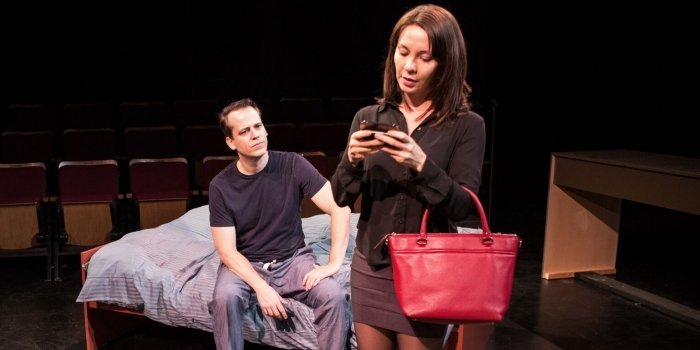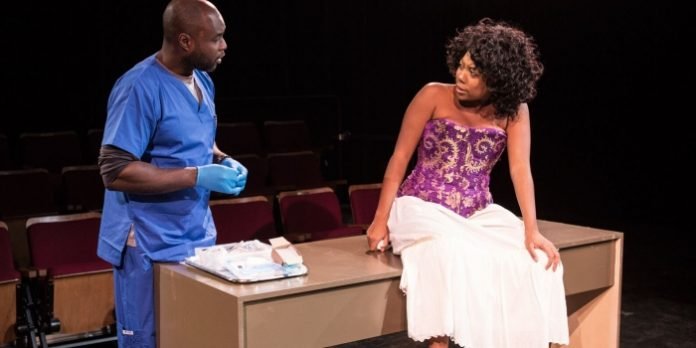In Lydia R. Diamond’s heady Smart People, they may be smart, but they don’t know a thing about relationships. And even while the questions Diamond raises in this modern comedy of manners are powerful, it too often stays on the surface of those very relationships designed to bring these questions to life.
Isolated in the first few minutes of the play, we are introduced to Diamond’s four characters. Not surprisingly, given the title, all come with pretty impressive credentials. African American Valerie is a recent M.F.A. acting grad; Asian-American Ginny is a professor of psychology; African American Jackson is a surgical intern at Harvard Medical School; and white Brian is a neurologist working on a potentially explosive study of racism at Harvard.
It doesn’t take a genius to figure out the lives of these four will eventually cross paths, and Diamond dutifully obliges by mixing and matching the quartet, as their lives begin to coincidentally intersect. As if to underscore the point, one of Diamond’s characters even compares it to “that fucking Kevin Bacon game”.
The most successful of these matches are between Valerie and Jackson. As played by Kwesi Ameyaw and Katrina Reynolds, they feel the most real and relatable. At first attracted, then repulsed by each other, Diamond has developed an interesting arc to their relationship. By allowing us better access to the two as people, we are more open to listening to their experiences. It is particularly fun to watch as the two fall into the same racial traps as we white people are so often accused.
The reverse is true for Ginny and Brian. As played by Trisha Collins and Aaron Craven, their relationship feels forced and awkward. Without the necessary accessibility, it is difficult to take their experience as seriously as the other coupling. Perhaps part of the problem stems from places of privilege for both of these characters. Brian’s comes from simply being white, but Ginny comes across as the stereotypical high-performing Asian.
This isn’t to say the quartet of actors fails in the delivering the goods, but it is all within the limitations Diamond has provided. There are additional intersections, and the four eventually all come together, but it is in these delineated pairings where the bulk of the emotional resonance should exist.

Underscoring her exploration of race, Diamond sets her play between 2007 and 2009, the years leading up to Barack Obama’s historic election to the US presidency. But this feels forced, with its only real use giving Diamond an emotionally satisfying ending which seems to remain elusive to her characters.
Written as short vignettes, under the direction of David Mackay the transitions between scenes add to the show’s length as a few clunky set pieces are mixed and matched as often as Diamond’s characters.
Presented in the round, there are a number of times when actors have their backs to the audience for extended periods. One of the most frustrating came in the final dinner scene as the four come together to wrap things up, and where our side of the house was unable to see anything but Collins’ back.
There is little question Smart People is book smart, with its central ideas fodder for some very interesting post-show discussions. But for those ideas to have any lasting impact it takes real characters, and Diamond has a tough time getting us out of our heads and into our hearts.
Smart People by Lydia R Diamond. Directed by David Mackay. A Mitch and Murray Productions presentation. On stage at Studio 16 (1555 West 7th Ave, Vancouver) until November 18. Visit https://mitchandmurrayproductions.com for tickets and information.

